Black, Asian and Minority Ethnic Staff Profiles
The following public profiles have been provided by Black, Asian and Minority Ethnic (BAME) staff from the University of St Andrews. If a member of staff would like to be part of this initiative, please email: diversity@st-andrews.ac.uk
Kevin Lala (formerly Laland), Professor of Behavioural and Evolutionary Biology, School of Biology
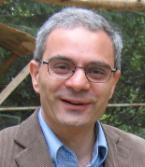
Provided 19 Dec 2019: Born in England to an Indian (Parsi) father and English mother, I was raised near Coventry in the West Midlands. I left home to study engineering at Southampton University, only to change to Psychology after a year. I went on to complete a PhD in Psychology at University College London (1990), before switching to studying evolutionary biology through a Human Frontier Science Programme fellowship held at the University of California, Berkeley, USA. After a couple of years of sunshine, I returned to the U.K. to take up a BBSRC postdoctoral fellowship (1993) and then a Royal Society University Research fellowship (1995) at the University of Cambridge. In 2003 I took up a position of Reader in the School of Biology at the University of St Andrews, and was promoted to Professor in 2005. I live in St Andrews with my wife and two children, and have found it an extremely friendly and supportive environment to raise a family.
My research focuses on animal behaviour and evolution, particularly the evolution of intelligence, cognition, and culture. I have published 12 books and c. 300 scientific articles on these topics, and been the recipient of more than £16m in grant income. I am an Elected Fellow of the Royal Society of Edinburgh, a Fellow of the Royal Society of Biology, and recipient of both an ERC Advanced Grant and a Royal Society Wolfson Research Merit Award. I care about equality and diversity, and am proud to have sat on the School of Biology’s E&D committee (currently Deputy Chair) since its inception in 2011, and to have contributed to several Athena SWAN applications.
Akira O'Connor, Senior Lecturer, School of Psychology & Neuroscience
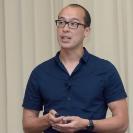
Provided 20 Dec 2019: I grew up in North West London, with my Japanese and Irish parentage evident in the food, friends and family of my childhood. Being mixed race though, was a confusion I didn’t have the tools to understand—not knowing why my experiences weren’t the same as those of my parents, never feeling fully part of either community, and occasionally being told this outright.
I went through undergraduate and postgraduate degrees at Leeds University. Confidence in my identity grew, but with significant setbacks whenever I overstepped marks faded from polite conversation, but which remain barriers to ‘people like me’ ever feeling fully at home. Then to St Louis, Missouri for three years in a nation that seemed to see me only as British—an entirely new experience. It was an exhilarating time in my career. I gathered skills, friends and new ways of thinking, and felt proud to be a memory researcher.
I successfully applied for a lectureship at St Andrews, a position that would see me living outside a city for the first time in my life. It has been easy adjusting to life in the countryside, though I miss the racial and cultural diversity of urban life, especially on behalf of my two children. I was promoted to senior lecturer, as much a battle with my own feelings of worth in an institution where few share a similar background, as with the formal panel judging my application. Perhaps most importantly though, I have drawn on a close network of friends and colleagues who supported me personally and professionally. The University runs a Staff BAME Network that does much to mitigate the potential for isolation. They have supported additional training in leadership, and have involved me in equality and diversity decision-making. The University and College Union branch, with whom I am the Equalities Officer, provides regular fora for further explanation of these and other causes that have shaped me and continue to shape my relationship with higher education. I feel valued at St Andrews.
Lilia Chatterjee, Training and Development Coordinator, Estates Unit

Provided 27 Jan 2020: I was born and brought up in India, New Delhi and left home early to fly for Emirates – a Middle Eastern Airlines, which employs over 160 nationalities. I suddenly found myself working amongst such a diverse group of colleagues. It took some time for me to absorb that I have to work with a new set of staff with different nationalities every flight and any issues with them will have to be sorted on board, so I have to override any unconscious bias while working with them. It was inspiring to meet different passengers from various walks of life, listening to their stories and making their flight experience an unforgettable one. On-board, I loved having conversations about race and seeing the change in culture, as everyone was as inquisitive. In 3 years, I was leading a cabin crew of 18-28 staff and experience to deal with multi- cultural crew taught me being a Leader are Made over time and are not Born. It also proved it is individual skills that matter and nothing to do with one’s nationality, race or culture.
I completed my MBA in Human Resources while working and soon moved to Emirates Aviation College as a Trainer, flying part time to keep my license valid. I worked in the Corporate HR Office and was dealing with Crew Grievances. It opened my eyes that we live in a judgemental society. We have been taught this as a social etiquette and we know it’s a cliché "Do not judge people" but we always do. I was more confident now and tried to see the bigger picture without being judgemental.
I successfully applied for working for the Ruler of Dubai, in his Corporate Human Resources Department where I was recruiting all over the world for a cosmopolitan team for his 5 start Hotels, staff for world’s richest horse race and his multimillion-dollar Modern City. In all the recruitment process, I aimed at understanding biases that I have and not acting to any biases to select the best candidate.
I moved to Dundee after getting married and St Andrews drew me most instantly for the multi-ethnic community of staff and students I get to work and interact with. Having a lot of exposure to a cosmopolitan work culture and my CIPD qualification one of them being Diversity and Inclusion, my aim now is to provide a support network, ensure minority staff and students have a sense of belonging and that whatever work I undertake; to try make it racially diverse and inclusive environment for all.
Juan Ye, Senior lecturer, School of Computer Science
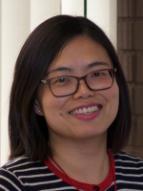
Provided 3 Feb 2020: I was born and grew up in China. I obtained my BSc and MSc in computer science at Wuhan University, China. I left China and studied PhD at University College Dublin, Ireland. In 2009, I moved to St Andrews as a postdoc, and then became a lecturer. My research centres on human behaviour recognition and analysis, specialising in sensor fusion, semantic web technologies, uncertainty and temporal reasoning, applied machine learning, and data mining techniques.
I was promoted as a senior lecturer in 2019, with huge support from colleagues who have given me lots of advice on promotion application and career development. The University values equality and diversity, and I have been supported in Aurora - a programme to develop women leaders in higher education.
Shereen Derkani, Education Liaison Officer, Admissions Unit
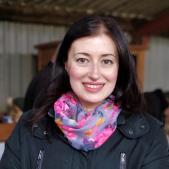
Provided 16 Feb 2021: I was born in Southport, a seaside town in the North West of England. My Mother is English, and my Father is Iranian. I am married to an Iranian man and we have two daughters. We visit our family in Iran every year and Persian culture is very much a part of our daily life.
Throughout my childhood, I felt I was different from the people that surrounded me. The way I was brought up was a juxtaposition of being the same and very different to my friends. At times this was confusing, but I now know it was because I didn’t see a reflection of myself in others.
Moving to a more diverse city like Nottingham to study my undergraduate degree in Fashion Marketing is where I found my interest in identity. The way we present ourselves reflects how we want to portray ourselves to the world around us. After completing my undergraduate degree, I moved to London to support the start up of a personal shopping service for a large fashion brand alongside fashion styling for editorial and commercial projects for fashion magazines. Diversity within the communities I worked and socialised with where broad, however, there was a striking link between social economic status and race which led to my learning of white privilege and intersectional feminism.
I moved to St Andrews and worked for a luxury fashion brand managing Scottish retail sites to support the client journey and colleagues learning and development pathway. I was struck by the lack of diversity in the female dominated working environment. It led me to think about the multiple forms of oppression and how they are experienced by different people depending on the different facets of their identity.
I changed careers after 12 years of working in the fashion industry because I believe that education changes people’s lives for the better. I am now on journey with myself to recognise the privileges and disadvantages I have experienced as a mixed raced woman. Firstly, asking myself, what do I need to unlearn? I am discovering how I can be much more intentional and conscious about the power I have as a mixed raced woman to amplify others.
Dr Ana P Gutierrez Garza, Lecturer in Social Anthropology, Director of the Centre for Amerindian and Latin American Studies
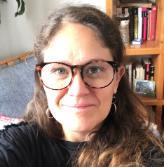
Provided 19 Feb 2021: I was born in Mexico City. My family, as many families in my country, come from a mixed background of Indigenous peoples and Spanish ancestors. Still in my country, which is socially and economically divided across the intertwinement between class and race (and colour), I qualify as white. My skin colour in my country has provided me with opportunities that brown and black people struggle to have in Mexico. I grew up being aware of the racial and class inequalities and of the diversity that exist in the country. As a result, I worked for several years in Amnesty International Mexico as campaigner for the Rights of Indigenous peoples. In 2002, I won a scholarship and came to the UK to study a MSc in Anthropology and Development at the London School of Economics. After finishing my degree, I went back to Mexico City and worked for several years in Human Rights’ NGOs. In 2008, I decided that I wanted to continue my studies and after getting another scholarship I came back to the UK and study my PhD in Social Anthropology at the LSE. My Doctoral research focused on the study of the migration of Latin American women working in the sex and domestic work industry in London. At the LSE, I also completed a post-doctoral research in which I worked with an anti-eviction housing movement in Madrid and explored the impact that the economic crisis of 2008 had on various minority groups. As an anthropologist, I have always been interested in studying the ways in which people manage and cope with structural inequality in which race, class and gender (along with other positionalities) are key aspects to understand peoples’ strategies not only of coping but persevering.
As a Mexican woman studying and working in the United Kingdom, I have always felt as part of a minority that is under-represented. Although white in colour, my accent discloses my non-British, non-European background. In contrast to the United States, the United Kingdom does not recognize Latin Americans, or Hispanics as an ethnic minority group, therefore there is a lack of spaces for students in which they could feel like they belong and where their voices can be heard.
The institutions where I have studied and worked in the UK, LSE, Oxford and now St Andrews are characterized by having students from quite privilege (often white) backgrounds. I have found that in such institutions issues of representation, diversity and exclusion get easily diffused. As a result, though there were no formal support groups, as a lecturer and academic advisor, I had informally supported the work of those Latin American students (and other minority groups) who felt excluded from the system and isolated. As a new member of St Andrews University, I see BAME as an opportunity to address these issues and to start talking about race and structural inequality in an opened way.
Ellen MacMillan, Human Resources

Provided 7 Jul 2023: I was born in south-east England to a Uruguayan mother and English father but was raised in St Andrews. As well as going to school here, I also graduated from St Andrews University with a degree in Behavioural and Environmental Biology before deciding that I wanted to do something completely different with my career. Having worked part time during my degree in administration jobs, I decided I wanted to work with people instead of animals and see more of the world so I joined the RAF in a personnel support role. In 2020 I returned to St Andrews to raise my family and continue a career in Human Resources working at the University.
I now specialise in HR investigations, assisting to try and resolve workplace issues, deliver investigation training and help in other areas of HR where required such as recruitment interviews. Born and raised in a multicultural background, with a large family back in Uruguay I am very proud of my heritage and consider myself as English, Scottish and Uruguayan! This heritage has instilled in me a strong sense of cultural diversity and empathy, which I can apply in my daily interactions within the organisation and gives me a passion for maintaining a fair and inclusive work environment.
Sukhi Bains, Head of EDI
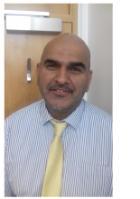
Provided 1 Dec 2019: I was born in England to Sikh parents from India decades ago (not giving away my age), and my first language was Punjabi. I relocated from South-East England to work at St Andrews in 2009. Although the living environment was completely new, being familiar with rural environment settings in southern England and Wales, and quickly connecting with the cosmopolitan community here, the settling-in process was straightforward for me. Thanks also to the support from HR in terms of relocation and members making me feel welcome in the office.
From the 1990s I’ve focused on multiple-identity cohesion within communities, and empowering people to achieve positive diversity outcomes – one could refer to this as being a change agent. Working in the central EDI Team at the University, places me in the fortunate position of working with my peers to progress diversity within the institution. I’ve implemented this approach across Scotland through my work with the EHRC, Scottish Funding Council and Universities Scotland in key influencing roles. I’ve also helped members of the public from diverse backgrounds as well as those from the further and higher education, across UK and Ireland on matters of racial and faith specific areas of diversity, and I enjoy helping more in the future.
